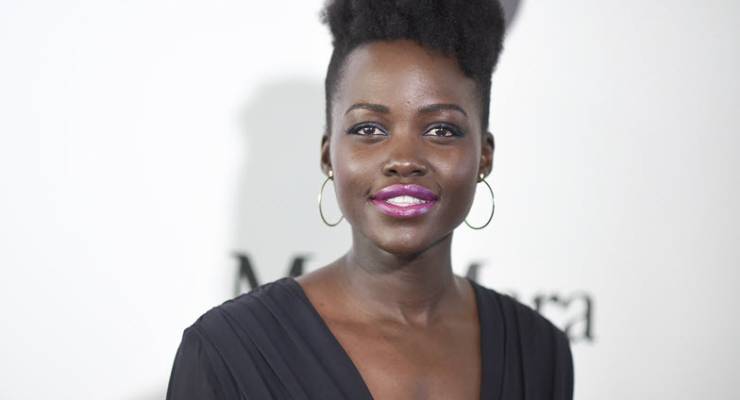
Lupita Nyong’o is one of many women to claim Harvey Weinstein assaulted her
When talking about Weinstein, Waterstreet, Gayle et al., the first point to note is that there is a continuum to sexual offences: at one end, sexual harassment in the workplace and the street; at the other, rape and sexual assault.
It’s not all necessarily a crime, although all of it could be. A man exposing himself to a massage therapist, as cricketer Chris Gayle was accused of doing, might be up for an offensive behaviour charge, a minor misdemeanour. Workplace sexual harassment – the uninvited and unwanted sexual approach, innuendo or other inappropriate behaviour of a sexualised type – can trigger criminal liability, but more often is dealt with as a civil claim.
What’s currently in public focus is pretty much the full range of sex-related offences (using that word in the generic, not criminal, sense). Gayle was accused and barrister Charles Waterstreet has been accused of engaging in non-physical, unwanted acts of a sexual nature towards women. Kevin Spacey is alleged to have molested a teenage boy, in what would amount to at least an indecent assault. Harvey Weinstein stands accused of everything from basic harassment to violent rape.
None of these allegations have been established; in Gayle’s case, a jury in his defamation case against Fairfax Media concluded that he did nothing at all. For the others, legally speaking, we simply don’t know.
Am I treading carefully here? Hell yes. This is a minefield, as Fairfax was reminded when Supreme Court Justice Lucy McCallum expressed her unhappiness with comments it had made in the immediate aftermath of the jury’s verdict in the Gayle case. Fairfax had said it felt it didn’t get a fair trial; the judge is contemplating whether those words were an attack on the court itself.
The legal sensitivity is driven primarily by the courts’ imperative to protect their own integrity, and the rights of those who stand accused. Not that the courts don’t also strive to protect alleged victims’ interests too; they do, by suppression orders and, in sexual assault cases, increasingly inventive approaches to reducing the re-traumatisation that the process tends to cause.
However, this recent outpouring of public accusations of sexual misconduct and worse tells us something about the structural imbalance that persists in the legal system and discourages its accessing by victims.
It’s not that the justice system is consciously stacked in favour of alleged perpetrators. But consider the obstacles facing a hypothetical woman who has been the sex victim of a powerful man. Her legal options are to make a criminal complaint, pursue a sexual harassment claim if it happened in the workplace, or complain to the perpetrator’s professional body or industry regulator if there is one.
The essential difficulty here is that sexual misconduct so often occurs in the absence of witnesses or forensic evidence. This inevitably turns the accuser into the focal point of the case; if she is not believed to be truthful, then the case fails. And that’s necessarily a lottery.
Or she can forget the legal system and go public, as so many women have been doing lately. The risk to her is not excluded; the perpetrator can sue for defamation, and once again her credibility will be in the spotlight.
It is easy to jump to the “yeah, but” point that this problem cuts both ways: the heightened risk of false accusations and innocent men having their reputations destroyed by malicious claims of wrongdoing. That’s absolutely true. The answer isn’t to re-skew the legal system to declare open season against alleged perpetrators of sexual wrongdoing.
However, we know two things: harassment and worse, mostly of women, remains endemic; and women are now standing up in growing numbers to tell their stories. They’re employing the media for that purpose, not the law. The court of public opinion, entertaining as it is, will not deliver justice.
This is an imperative challenge for the law. As the big names continue to be outed all over town, we need to start an urgent conversation about how this tsunami of accusation can be brought back to a fair and due process for all parties. This will require imagination and, perhaps, a break from the adversarial system, which, in this context, just doesn’t serve.
*Michael Bradley’s firm Marque Lawyers represents New Matilda, which recently published allegations of sexual harassment against Charles Waterstreet.








I will say this about Gayle. I frankly doubt his word, but given the scandal about his obvious harassment live on TV and undenied, he has no reputation to defame from my standpoint. we already knew he was an egocentric sexist prat. I also have yet to see him put effort in for his BBL sides. His reputation was mighty low and I didn’t know about what he was supposed to have done until he went to court. His reputation in my eyes is just as low. Pick up your bat and piss off is my take.